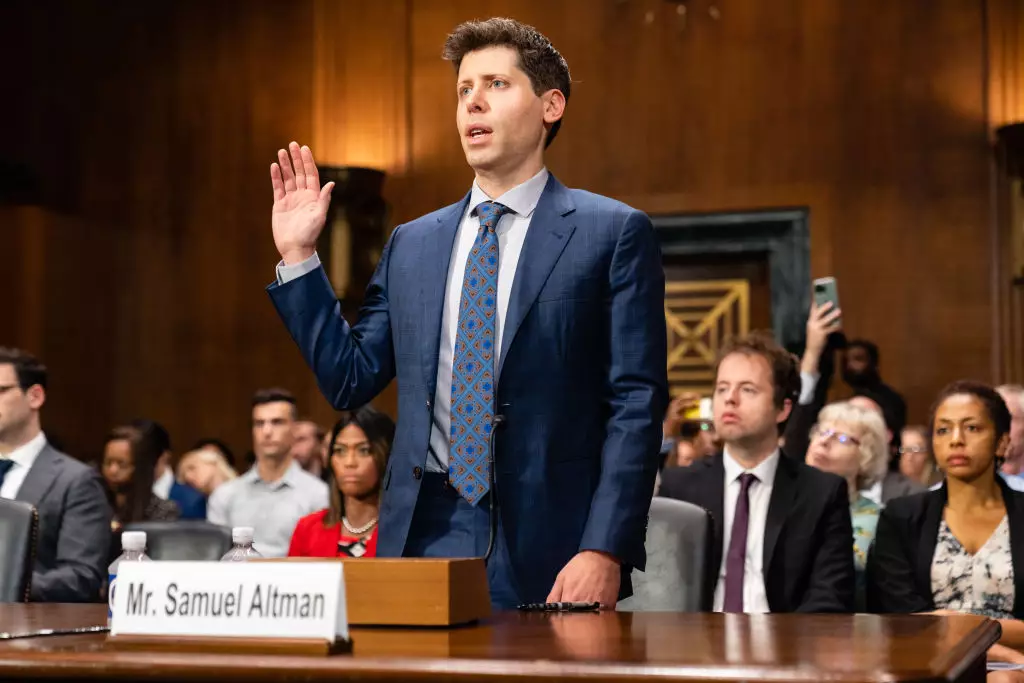The landscape of artificial intelligence (AI) lobbying in the United States is experiencing remarkable transformation, characterized by a sharp increase in corporate spending on AI-related advocacy. Amid growing regulatory uncertainty, the pressure for legislative action has prompted companies to intensify their lobbying efforts, leading to a year-over-year spending surge that reflects the significance of AI issues in today’s political arena.
A Dramatic Increase in Lobbying Expenditures
Data from OpenSecrets reveals a noteworthy escalation in AI lobbying, indicating that 648 companies allocated funds for advocacy efforts in 2024—up from just 458 in 2023. This 141% increase highlights the urgent need for corporations to navigate the complex regulatory environment surrounding AI technologies. Notably, major players like Microsoft have shown their support for initiatives such as the CREATE AI Act, aimed at establishing benchmarks for domestically developed AI systems. Concurrently, OpenAI has backed the Advancement and Reliability Act, which seeks to create a dedicated government agency for AI research.
The statistics reveal that AI-centric companies, often concentrating solely on AI development, made significant lobbying investments, with OpenAI’s expenditures soaring from $260,000 in 2023 to $1.76 million in 2024. Competitors like Anthropic also recognized the mounting necessity for an active lobbying strategy, increasing their spending from $280,000 to $720,000 within the same timeframe. The enterprise-focused startup Cohere mirrored this trend, raising their budget from a modest $70,000 to $230,000.
This heightened financial commitment to lobbying aligns with a strategic pivot in how AI-related firms are engaging with policymakers. For instance, both OpenAI and Anthropic have significantly bolstered their lobbying teams by hiring experienced lobbyists to strengthen their policy outreach. Anthropic’s recruitment of Rachel Appleton, a former official from the Department of Justice, exemplifies the effort to cultivate deeper connections with lawmakers. Similarly, OpenAI captured attention with the appointment of Chris Lehane, a seasoned political strategist, to oversee their policy initiatives.
Collectively, these three AI firms devoted a total of $2.71 million to lobbying activities in 2024, a substantial increase compared to the $610,000 that was spent collectively the previous year. Although this figure remains modest in relation to the tech industry’s overall lobbying expenditures of $61.5 million, it nonetheless signals a notable shift as the AI sector aims to amplify its voice in legislative discussions.
The transition from mere advocacy to actionable policy is evident in both state and federal legislative arenas. In 2023 alone, over 90 AI-related bills were introduced at the congressional level, highlighting the increasing significance placed on AI regulation. At the state level, more than 700 legislative proposals were brought forth reflecting diverse approaches to AI governance. However, despite the flurry of proposals and interest, the absence of substantial progress at the federal level has prompted state lawmakers to take the reins.
States like Tennessee have pioneered protective legislation for voice actors against unauthorized AI replication, while Colorado has adopted a risk-based framework for regulating AI applications. Furthermore, California has emerged as a leader in AI safety regulation with several bills passed that require developers to disclose crucial information about their AI training processes. Nonetheless, these state efforts have not yet resulted in comprehensive regulations comparable to international benchmarks such as the European Union’s AI Act.
The Political Climate and Its Impact on AI Regulation
Uncertainties surrounding the political landscape raise questions about the future of AI regulations. The impending Biden administration’s tenure began with a promise of enhanced oversight, only to face significant pushback from influential stakeholders, including former President Donald Trump. His administration has indicated intentions to roll back many regulations, creating an unpredictability that complicates the prospects for sound and effective AI governance.
The call for a more proactive approach from industry leaders, including Anthropic’s appeal for targeted federal regulation, underscores a dramatic shift in urgency within the industry. As concerns regarding AI’s potential risks mount, the rallying cry for a regulatory framework appears increasingly critical in the face of rapidly evolving technology.
The landscape of AI lobbying is shifting dramatically, characterized by increased spending, strategic hires, and a robust legislative push at both state and federal levels. The future of AI regulation will demand a careful balance between fostering innovation and ensuring safety, navigating a complex intersection of technology, policy, and public interest. Robust engagement from industry players could shape the trajectory of regulatory frameworks in a sphere that is critical to the future of many sectors.

